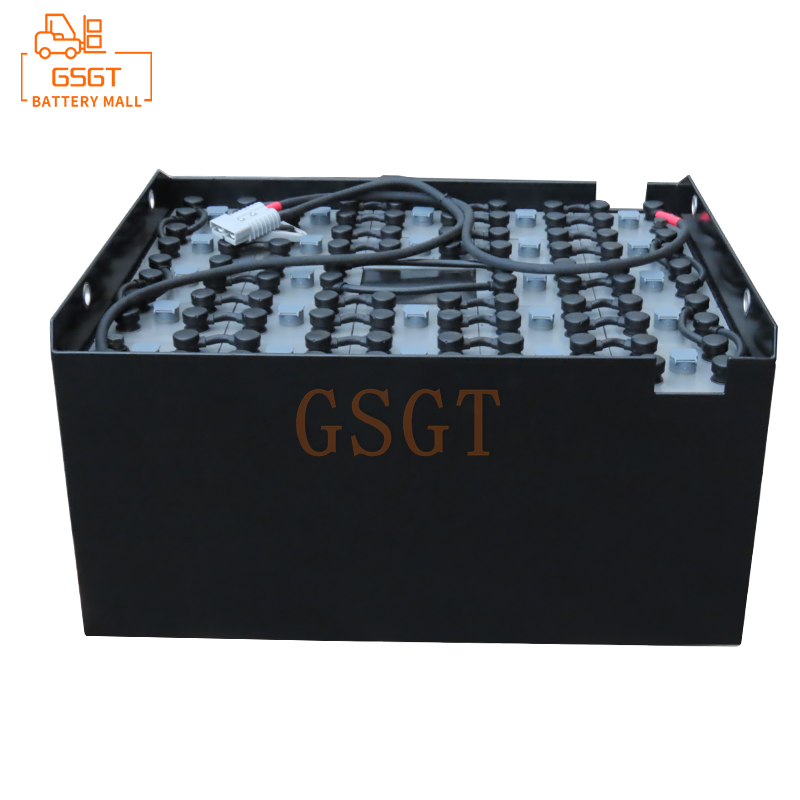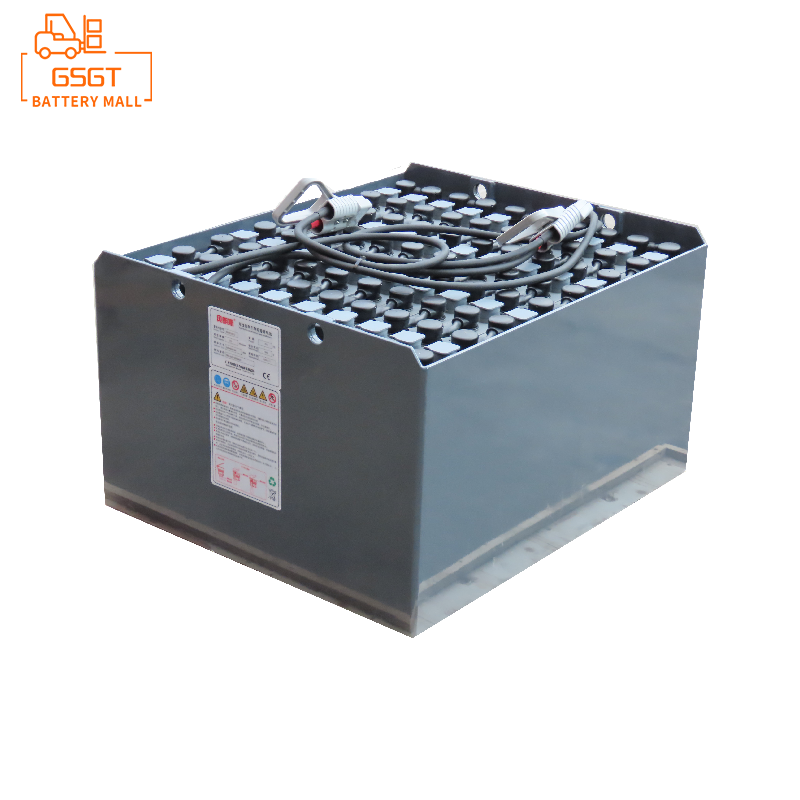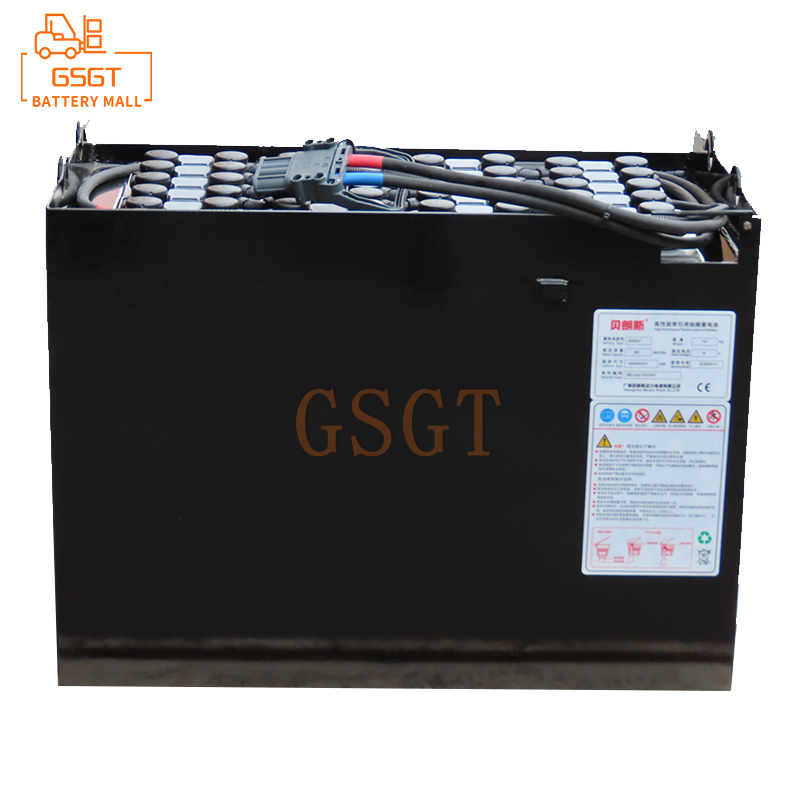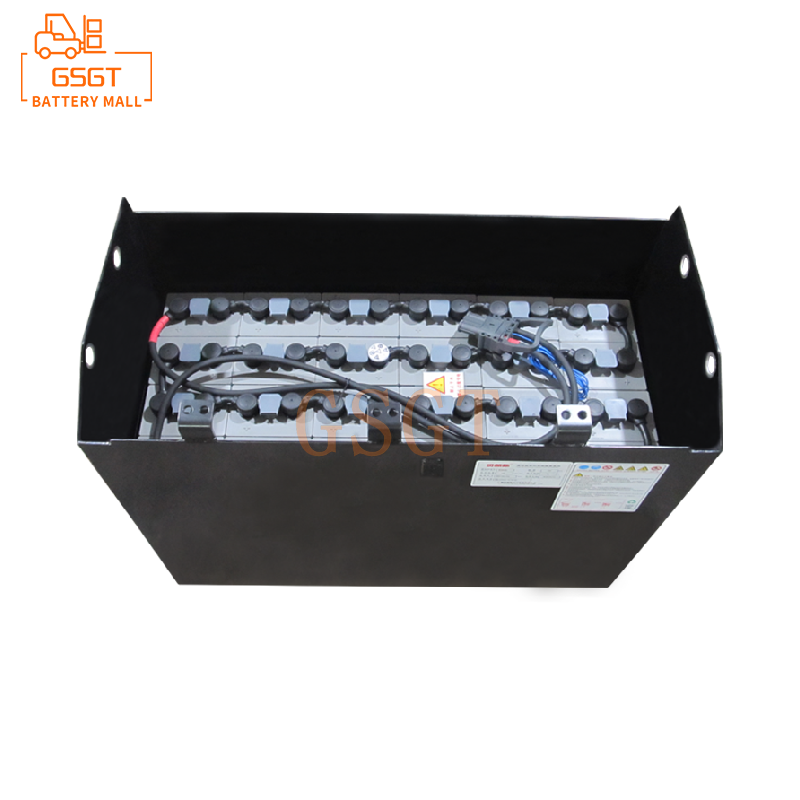Time:2025-07-23 14:35:00
Browse:626
In the field of industrial logistics, forklifts, as key material handling equipment, the performance of their power sources directly affects operational efficiency and operating costs. For a long time, lead-acid batteries have occupied an important position in the forklift power market due to their advantages such as low cost and mature technology. However, as the industry's demand for high efficiency, environmental protection and sustainable development continues to rise, the technology of forklift lead-acid batteries is also constantly being iterated and updated.
1. Current Status of Lead-Acid Battery Technology for Forklifts
The traditional lead-acid battery is composed of positive and negative plates, electrolyte, separators and casing, etc. Its working principle is based on the electrochemical reaction between lead and lead dioxide in a sulfuric acid electrolyte. In forklift applications, this type of battery can provide a relatively stable voltage output, meeting the power requirements of forklifts. However, it also has many drawbacks, such as low energy density, which limits the driving range of forklifts and frequently charges, affecting work efficiency. The cycle life is relatively short, with the general charge and discharge cycles being around 300 to 800 times, which increases the cost and time for battery replacement. Moreover, lead-acid batteries are heavy, not only consuming energy themselves but also posing challenges to the structure and operability of forklifts. At the same time, the problem of lead pollution cannot be ignored.
2. The demand for technological iteration gives rise to change
With the rapid development of the logistics industry, the usage scenarios of forklifts have become increasingly complex and diverse, putting forward higher requirements for battery performance. On the one hand, in some large logistics warehouses, forklifts need to operate for long periods of time and at high intensity, and the existing lead-acid batteries' endurance and lifespan are difficult to meet these requirements. On the other hand, environmental protection policies are becoming increasingly strict, and the pollution problem of lead-acid batteries urgently needs to be solved. In addition, in order to reduce operating costs, enterprises expect batteries to have less maintenance frequency and higher charging efficiency. These demands prompt the continuous innovation of lead-acid battery technology.
3. Technological Iteration Directions of Lead-acid Batteries for Forklifts
(1) Material innovation
Lead alloy optimization: By adding specific elements such as calcium, tin, and silver to lead alloys, the corrosion resistance and electrical conductivity of the grid can be enhanced. For instance, adding a small amount of silver can significantly enhance the conductivity of the grid, reduce the internal resistance of the battery, and thereby improve the charging and discharging efficiency and cycle life of the battery.
Application of new electrode materials: Introducing carbon materials and combining them with lead to form lead-carbon batteries. The high electrical conductivity and adsorption of carbon materials can effectively reduce the crystallization of lead sulfate on the negative electrode, inhibit the sulfation phenomenon of the battery, extend the battery life, and at the same time improve the battery's charge and discharge acceptance capacity.
(2) Structural improvement
Sealing technology upgrade: Advanced sealing processes, such as valve-regulated sealing technology, are adopted to prevent electrolyte leakage, reduce acid mist emissions, lower maintenance requirements, and simultaneously enhance the safety and stability of the battery, making it more adaptable to complex working environments.
Battery modular design: The battery is designed as a modular structure, which facilitates flexible combination according to the different power requirements of the forklift. Meanwhile, when some components of the battery fail, the modules can be directly replaced, reducing the difficulty and cost of maintenance.
4. Q&A on the Technological Iteration of Lead-Acid Batteries for Forklifts
(1) Q: To what extent can the battery range of forklifts be improved after the technological iteration of lead-acid batteries?
Answer: Through material innovation and structural improvement, the energy density of the new type of lead-acid battery has been enhanced. For instance, compared with traditional lead-acid batteries, lead-carbon batteries can increase their energy density by approximately 10% to 20%. This means that under the same volume and weight, after forklifts are equipped with the new type of lead-acid battery, their driving range is expected to increase by 10% to 20%, thereby reducing the frequency of charging and improving work efficiency.
(2) Q: What impact does the intelligent management system have on the maintenance cost of lead-acid batteries?
Answer: The BMS in the intelligent management system can precisely control battery charging and discharging, preventing battery damage caused by improper charging and discharging and extending the battery's service life. According to statistics, lead-acid batteries using advanced BMS can extend their cycle life by 10% to 30%. Meanwhile, remote monitoring and diagnosis technology can detect potential battery faults in advance, carry out maintenance in a timely manner, and avoid the high repair costs and downtime losses caused by sudden failures. Overall, the intelligent management system can effectively reduce the full life cycle maintenance cost of lead-acid batteries.
(3) Q: How do lead-acid batteries cope with environmental protection pressure during the process of technological iteration?
Answer: In terms of materials, by optimizing the lead alloy formula, the usage of lead is reduced and the recycling rate of lead is enhanced. In the production process, more environmentally friendly techniques are adopted to reduce pollutant emissions. Meanwhile, with the upgrading of sealing technology, it effectively prevents the leakage of electrolyte and the emission of acid mist, reducing pollution to the environment. In addition, it is necessary to strengthen the management of the recycling of used lead-acid batteries, establish a complete recycling system, ensure that heavy metals such as lead are properly recycled and treated, and reduce the harm to the environment.
5. Conclusion
The iterative update of lead-acid battery technology for forklifts is an inevitable trend in the development of the industry. Through material innovation, structural improvement and the integration of intelligent management systems, lead-acid batteries will be significantly enhanced in terms of performance, lifespan and environmental protection. Despite the competition from new types of batteries such as lithium batteries, lead-acid batteries will still occupy an important share in the forklift power market and continue to contribute to the development of industries such as logistics, thanks to their constantly innovative technologies. In the future, with the further development of technology, forklift lead-acid batteries are expected to achieve breakthroughs in more fields, bringing more efficient and environmentally friendly power solutions for industrial applications.

$5880

$8340

$1790

$2290

MESSAGE
Professional And Efficient
Security
Affordable Price
Professional Services